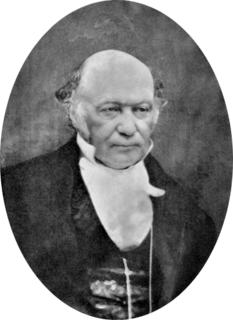A Quote by Robert Anton Wilson
Death makes me realize how deeply I have internalized the agnosticism I preach in all my books. I consider dogmatic belief and dogmatic denial very childish forms of conceit in a world of infinitely whirling complexity. None of us can see enough from one corner of space-time to know "all" about the rest of space-time.
Related Quotes
Agnosticism is a perfectly respectable and tenable philosophical position; it is not dogmatic and makes no pronouncements about the ultimate truths of the universe. It remains open to evidence and persuasion; lacking faith, it nevertheless does not deride faith. Atheism, on the other hand, is as unyielding and dogmatic about religious belief as true believers are about heathens. It tries to use reason to demolish a structure that is not built upon reason.
The principle itself of dogmatic religion, dogmatic morality, dogmatic philosophy, is what requires to be rooted out; not any particular manifestation of that principle. The very corner-stone of an education intended to form great minds, must be the recognition of the principle, that the object is to call forth the greatest possible quantity of intellectual power, and to inspire the intensest love of truth.
What binds us to space-time is our rest mass, which prevents us from flying at the speed of light, when time stops and space loses meaning. In a world of light there are neither points nor moments of time; beings woven from light would live "nowhere" and "nowhen"; only poetry and mathematics are capable of speaking meaningfully about such things.
If you see the intersection of time and space, you experience complete freedom of being. This state of existence is completely beyond any idea of time, space, or being. In that liberated state you can see fundamental truth and the phenomenal world simultaneously. That is called Buddha's world. That is the place where all sentient beings exist, so you can stand up there and see all beings, myriad beings. Then you know very clearly, through your own emotional and intellectual understanding, how all beings exist.
Death is the end of the fear of death. [...] To avoid it we must not stop fearing it and so life is fear. Death is time because time allows us to move toward death which we fear at all times when alive. We move around and that is fear. Movement through space requires time. Without death there is no movement through space and no life and no fear. To be aware of death is to be alive is to fear is to move around in space and time toward death.
... If we consider the difference between William Henry Jackson packing in his camera by mule, and the person stepping for a moment from his car to take a picture with his Instamatic, it becomes clear how some of our space has vanished; if the time it takes to cross space is a way by which we define it, then to arrive at a view of space 'in no time' is to have denied its reality.
We have all kinds of limitations as human beings. I mean we can't see the whole electromagnetic spectrum, we can't see the very small, we can't see the very far. So we compensate for these short comings with technological scaffoldings. The microscope allows us to extend our vision into the microsphere. The telescope allows us to extend our vision into the macrosphere, the Hubble Space Telescope extends our optic nerve into space, and it allows us to mainline space and time through our optic nerve.
Time is said to have only one dimension, and space to have three dimensions. ... The mathematical quaternion partakes of both these elements; in technical language it may be said to be 'time plus space', or 'space plus time': and in this sense it has, or at least involves a reference to, four dimensions. And how the One of Time, of Space the Three, Might in the Chain of Symbols girdled be.
In space-time everything which for each of us constitutes the past, the present and the future is given en bloc...Each observer, as his time passes, discovers, so to speak, new slices of space-time which appear to him as successive aspects of the material world, though in reality the ensemble of events constituting space-time exist prior to his knowledge of them.




































